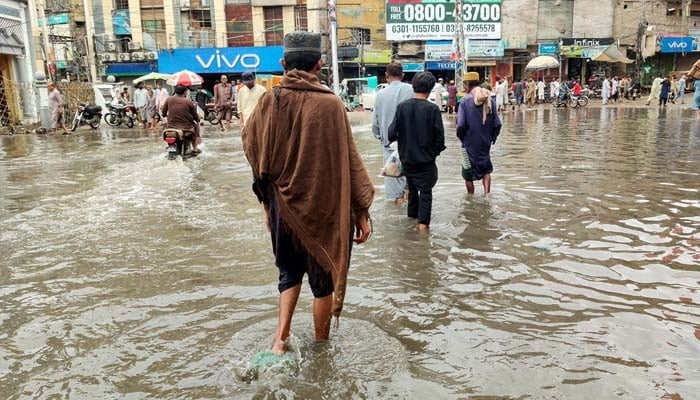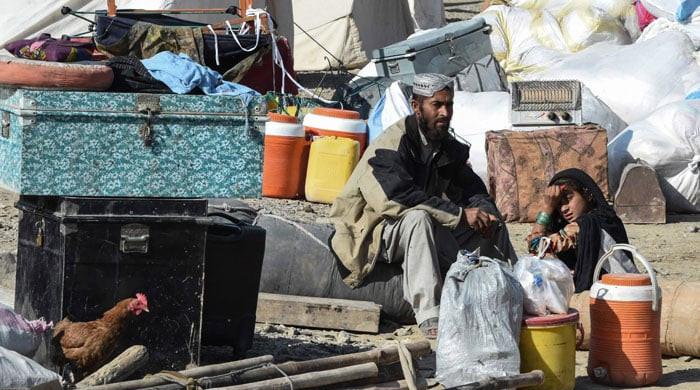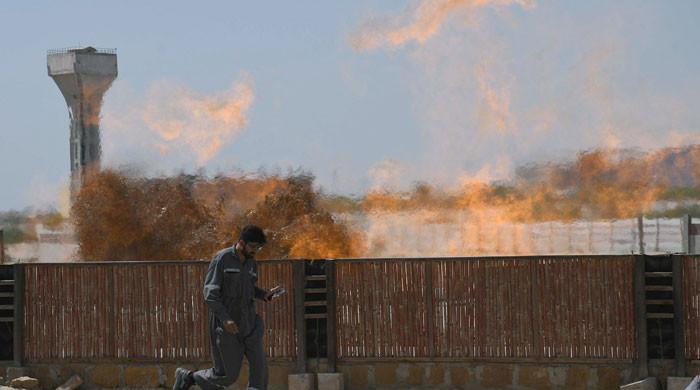Sukkur breaks '77-year record' with 290mm rain in a day
"116mm of rain was recorded in Sukkur in 48 hours," says chief meteorologist while rejecting claim of record
August 19, 2024

Sindh's Sukkur city has received devastating rains this monsoon season which broke the "77-year record" of the city with 290mm rains in a single day.
In 2022, 374mm of rain had been recorded in 12 days, while in the current spell, Sukkur recorded 290mm of rainfall in just a single day, an official statement issued by the provincial authorities claimed on Sunday.
Earlier on Monday, Sardar Sarfaraz, chief meteorologist at the Pakistan Meteorological Department (PMD), rejected the claim regarding the record-breaking rainfall in Sukkur, terming it "wrong".
"116mm of rain was recorded in Sukkur in 48 hours. Rohri near Sukkur recorded 134mm rainfall," he said, speaking with Geo News.
The Sindh government spokesperson and Sukkur Mayor Barrister Arsalan Islam Sheikh said that the dewatering process was completed in 80% of areas of the city. He added that the work was also in progress in the remaining areas and that life in the city would be back to normal in a few hours.
Sheikh further said that the Sukkur Municipal Corporation had completed the necessary arrangements for the timely dewatering of rainwater in advance, including the upgradation of disposal stations, and installation of heavy generators and relevant machinery in 57 low-lying areas.
He added that rainwater inundated Old Sukkur, Ghanta Ghar and other areas, however, timely action brought the situation under control.
Weather-related disasters are common during the monsoon season from June to September, but experts say climate change is increasing their frequency and severity.
Pakistan contributes less than 1% to global greenhouse gases yet is one of the countries most vulnerable to climate change.
In 2022, catastrophic flooding plunged a third of the country underwater, killing over 1,700 people, displacing 33 million and destroying thousands of homes.











